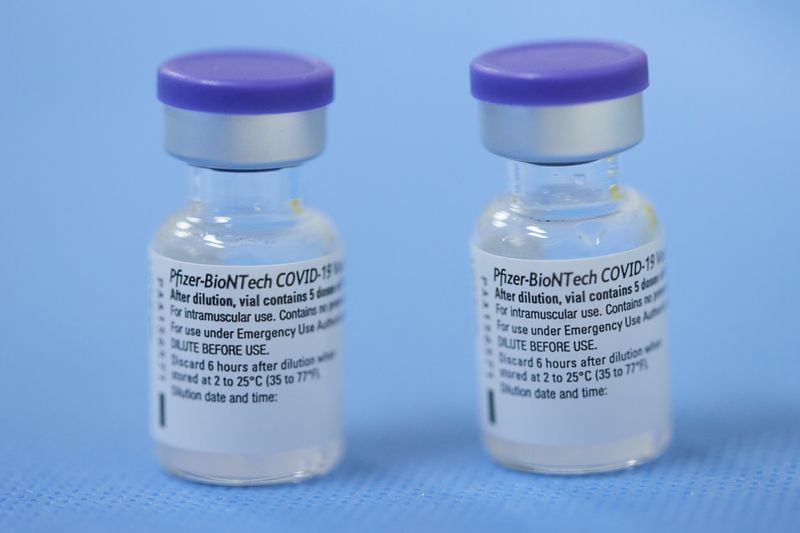LONDON (Reuters) – People in England who have received two doses of Pfizer COVID-19 vaccine are generating strong antibody responses as the shot is rolled out, researchers said on Thursday, adding that confidence in vaccines was high.
An Imperial College London survey showed 87.9% of people over the age of 80 tested positive for antibodies after two doses of the Pfizer-BioNTech vaccine, rising to 95.5% for those under the age of 60 and 100% in those aged under 30.
“Although there is some fall-off in positivity with age, at all ages, we get that very good response to two doses of the vaccine,” Paul Elliott, Chair in Epidemiology and Public Health Medicine, Imperial College London, told reporters.
Antibody levels are only one part of the immunity picture, with vaccines also shown to generate strong T-cell protection.
Nearly 95% of under-30s tested positive for antibodies 21 days after one dose, but this fell in older groups.
The research found 34.7% of those 80 years or older generated antibody responses from one dose of Pfizer vaccine, but Britain’s Joint Committee on Vaccination and Immunisation (JCVI) has previously found high protection from the Pfizer vaccine after one dose, even when antibody levels are lower.
Britain has extended the gap between doses to 12 weeks, even though Pfizer has cautioned it only has data for clinical efficacy with a three-week gap between shots.
Over 154,000 participants took part Imperial’s home surveillance study for COVID-19 antibodies, which monitors antibody levels from natural infection as well as among the vaccinated, between Jan. 26 and Feb. 8.
The survey also looked at confidence in vaccines, and showed it was high, with 92% having accepted or planning to accept a vaccine offer, though confidence was lower among Black people, dropping to 72.5%.
(Reporting by Alistair Smout; Editing by Giles Elgood)

























